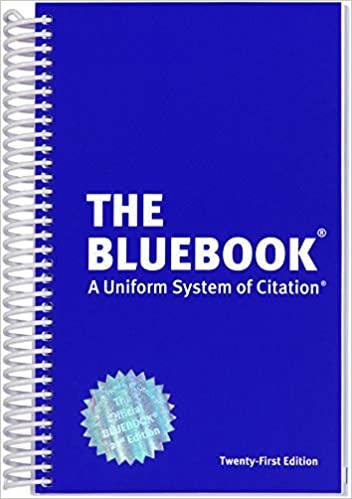Question
For each of the 4 scenarios, please determine: Is it a true interpersonal conflict? If you think yes, explain why. What are the characteristics which
For each of the 4 scenarios, please determine: Is it a true interpersonal conflict? If you think yes, explain why. What are the characteristics which define it as such? - should have at least 7 If you think NO, explain why not. What characteristics are missing? What is it if not a "conflict"?
Case 1
Delmar is about to graduate from a prestigious university, and he has received two excellent job offers. But he is not happy. What should be a happy situation is tainted by his anxiety - which offer to accept?? The one offer from a promising start-up tech company could be a fabulous opportunity to get in on the ground floor. He fantasizes about retiring at age 35 on his own Caribbean Island. But this company could fizzle, like so many other high-tech start-ups have, leaving him shortly on the street looking for a new job. His other offer is from a Fortune 50 company that has been in business for over a century, so he is sure it won't disappear into thin air as the dotcom might do. But career advancements will be slow. He fears being left behind in the technological revolution. Delmar knows this decision will chart the course of his career for years, if not decades. "What should I do? ... What if I make the wrong decision? ... How can I resolve this conflict?" he cries in anguish. Is it or isn't it?
Case 2
Gertrude comes home from work exhausted after another hard day at the office. She is nearly in tears with fatigue and frustration. "I don't know if I can take another day in that place," she complains to her husband. "What went on at the office today, honey?" he asks attentively. "Oh, that noisy construction is still going on across the street, and I found out today that it won't be finished for at least another month," Gertrude replies. "And the deadline is coming up soon on the big project I've been working on. I'm just not sure I can get it done on time. If I don't, I'll let the whole team down. I'm worried sick this job won't work out. I can't take much more of this conflict." Is it or isn't it?
Case 3
Teammates Shanette and Sherwood are struggling with a difficult technical problem. Shanette describes to Sherwood an approach to solving it she finds compelling. "Doesn't that make sense to you?" she asks, hoping he is persuaded by her logic. "You make a good case, and you have keen insight," agrees Sherwood, "but I think you've overlooked a critical piece of information. Did you see the memo from the RandD that warned about the dangers of doing it that way?" "Yes, I did," Shanette replied. "But they were talking about a very different kind of situation from the one we're dealing with." They debate, back and forth, each teammate adding more information to support his or her position. Each one considers the other's perspective, but they continue to see the problem differently. Is it or isn't it?
Case 4
Fred and Ginger are supposed to work closely together. Their desks are close. Fred often gets up from his chair to pace while he's thinking. This drives Ginger crazy. "Can't you just sit still for five minutes?" she asks, her voice tight with tension. "Do you have a medical problem? How do you expect me to concentrate with all your commotion?" "Look, I need to move around to think," Fred retorts angrily. "Besides, what right do you have to complain? You wear that horrendous perfume that pollutes the air I must breathe. Are you trying to cover up the fact that you don't bathe?" Fred and Ginger typically talk this way to each other.
Step by Step Solution
There are 3 Steps involved in it
Step: 1

Get Instant Access to Expert-Tailored Solutions
See step-by-step solutions with expert insights and AI powered tools for academic success
Step: 2

Step: 3

Ace Your Homework with AI
Get the answers you need in no time with our AI-driven, step-by-step assistance
Get Started


